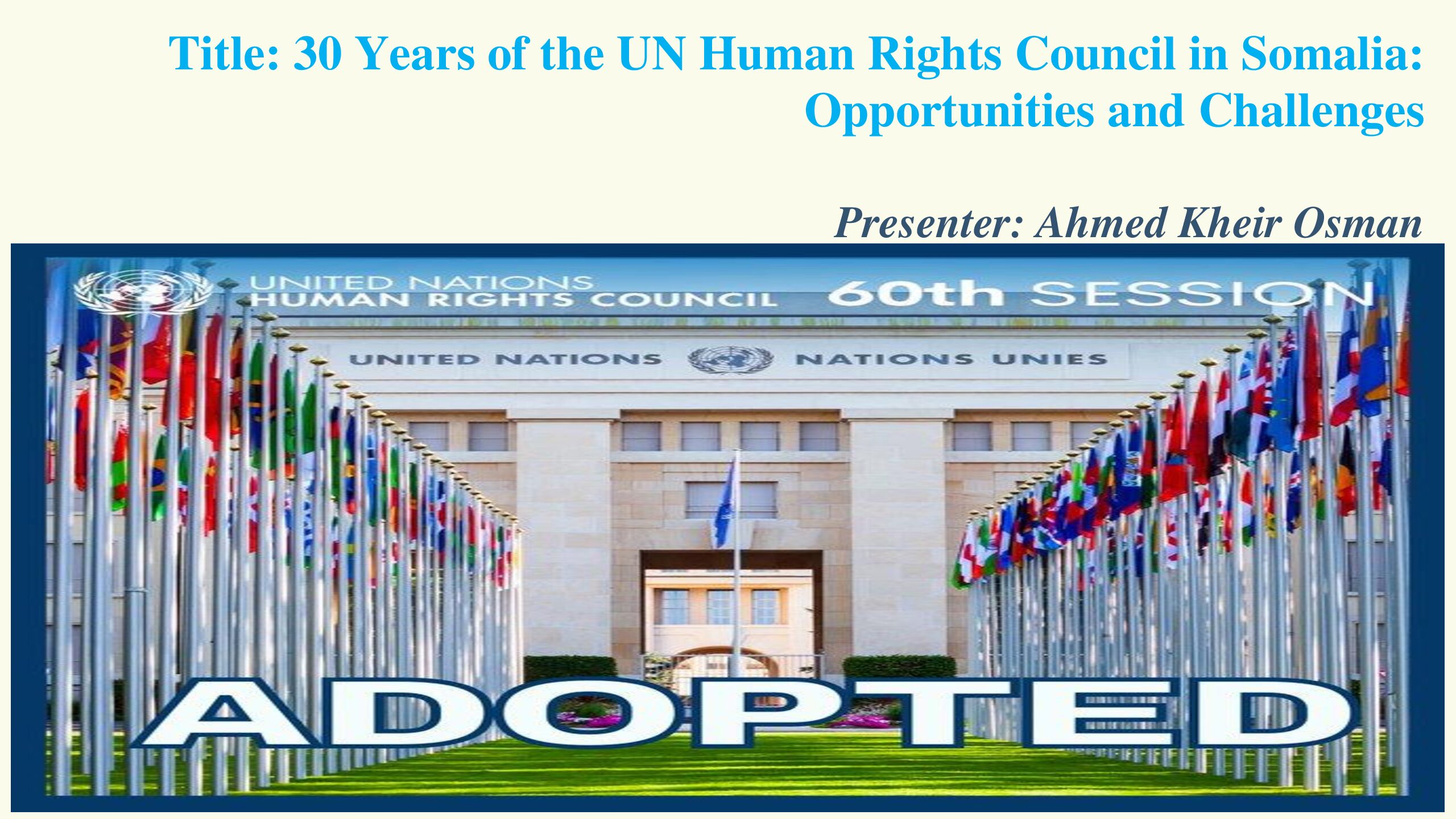The Respondent State, Somalia, raised a preliminary objection challenging the jurisdiction of the East African Court of Justice, arguing that the dispute falls within the exclusive domain of domestic institutions under Article 52 of the Treaty. According to Somalia, questions relating to the membership of EALA representatives are matters for national authorities once the electoral process has been concluded.[1]
However, the Applicants maintain that their challenge concerns the legality and validity of the election process before the nominees have been sworn in, thereby falling squarely under Article 50 of the Treaty. This distinction between pre-seating and post-seating disputes lies at the heart of determining whether the Court may entertain the Applications and the consolidated References.
- Pre-Seating Disputes and the Court’s Jurisdiction Under Article 50 of the EAC Treaty (Before Swearing-In)
Pre-seating disputes arise before elected members are sworn in, and they challenge the validity, fairness, or legality of the election process itself. Article 50(1) of the Treaty requires Partner States to elect their EALA representatives “in accordance with democratic principles, transparency, and gender and political party representation as much as is feasible.” Where an election process falls so far short of these standards that it can no longer properly be described as a democratic election, the Court has repeatedly held that it retains full authority to review the process, halt the seating of nominees, and annul the election if necessary. This principle is firmly supported by longstanding authorities:
Prof. Anyang’ Nyong’o & Others v Attorney General of Kenya [2] The Court annulled Kenya’s voice-vote dominated EALA election for violating the requirements of genuine competition, transparency, and representativeness.
Hon. Abdu Katuntu v Attorney General of Uganda[3], the Court issued an interim injunction restraining the seating of members pending determination of allegations of biased and discriminatory rules and wani Santino Jada v Attorney General of South Sudan[4] the Court stopped the seating of members irregularly appointed by the Executive without a Parliamentary electoral process.
Taken together, these authorities affirm that before seating occurs, the Court is empowered to intervene to prevent a Partner State from installing illegitimate representatives into a Community organ. Allowing seating under a defective process would irreversibly entrench illegality within the regional institution and contaminate the democratic legitimacy of EALA.
- Application to the Somalia dispute
In the present Somalia case, the nine nominees forwarded by the Somali Parliament on 16 October 2025 have not been sworn in. The Applicants allege that the underlying electoral process lacked transparency, competitiveness, and compliance with Article 50 standards. They argue that the process was so fundamentally defective that it does not constitute an “election” within the meaning of the Treaty.
Because the challenge is directed at the process itself, not at the status of individuals already seated, it falls squarely within the pre-seating category recognized by the Court’s jurisprudence. The legal and factual issues raised by the Applicants align closely with the defects condemned in Anyang’ Nyong’o, Katuntu, and Wani Santino Jada. Thus, the case is firmly within the Court’s jurisdiction.
- Article 52 and the Limitation of the Court’s Authority Over Post-Seating Disputes (After the Oath Has Been Administered)
Under article 52 of the Treaty expressly reserves post-seating disputes those arising after a member has taken the oath and taken their seat to the domestic institutions of the Partner State. These include questions of: loss of qualification, recall, resignation, and any procedural irregularity raised only after seating.
Once a person has been sworn in as an EALA member, any challenge to their continued membership must be resolved in accordance with the national laws and parliamentary procedures of the Partner State concerned. The Court has repeatedly declined jurisdiction in post-seating scenarios as illustrated in the case of Rev. Christopher Mitikila v Attorney General of Tanzania[5] the Court refused to intervene because the individuals were already seated, holding that membership questions fall under Article 52. Furthermore, the court held that in the democratic Party & Hon. Mukasa Mbidde v Secretary General of the EAC & Attorney General of Uganda[6], post-seating challenges to the 2012 Ugandan EALA elections were dismissed for lack of jurisdiction under Article 52.
These authorities emphasize that the Court is not an appellate tribunal for completed domestic elections and must respect Partner State sovereignty after seating has occurred.
In Somalia’s case, because no member has yet been sworn in, Article 52 has no application. There is no “question concerning membership,” and thus the Preliminary Objection founded on Article 52 is rightly dismissed.
- The EACJ Has No Appellate Jurisdiction Over National Courts
Under Articles 23 and 27(1) of the EAC Treaty, the East African Court of Justice is vested with jurisdiction to interpret and apply the Treaty. Importantly, the Treaty does not designate the EACJ as an appellate court over national courts. This principle has been affirmed repeatedly in EACJ jurisprudence in the case of Attorney General of Uganda v. Tom Kyahurwenda[7], the Court held unequivocally that: “The EACJ is not an appellate court over decisions of the courts of Partner States.” This means litigants cannot challenge or overturn national court judgments before the EACJ.
Democratic Party & Hon. Mbidde v. Secretary General of the EAC & AG Uganda, the Court dismissed a post-seating challenge to Uganda’s EALA elections, reiterating that:“Questions of membership once a representative is duly seated fall exclusively under Article 52 and are reserved to domestic institutions.”[8] Therefore, once a national process is complete and the member is sworn into EALA, the EACJ cannot function as a second appellate avenue.
- The EACJ May Intervene Only Where a State’s Conduct Breaches the Treaty
Although the Court cannot overturn national judgments, it can entertain a new Reference alleging that the Partner State violated the Treaty’s mandatory principles of rule of law, good governance, or human rights when handling the matter internally. This is not an appeal; it is a Treaty-violation claim.
Relevant Treaty Provisions:
- Article 6(d) – Rule of law, accountability, and good governance
- Article 7(2) – Adherence to the principles of democracy, rule of law
- Article 30(1) – Right to bring actions against acts/omissions of Partner States
- Article 27(1) – Interpretation and enforcement jurisdiction
This was illustrated in the case of the Sitenda Sebalu v. Secretary General of the EAC (2011)
The Court did not overturn the Ugandan court decision but examined whether the State’s handling violated the Treaty. The Court held that: Even when a national court has acted, the EACJ retains authority to determine whether a Partner State’s conduct is inconsistent with the Treaty obligations.
In the same vain, Plaxeda Rugumba v. Attorney General of Rwanda (2013) The Court held that: National processes do not oust the EACJ’s mandate to review whether a State adhered to Treaty principles. This case shows that even when domestic courts act, the EACJ can scrutinize the State’s actions, not the correctness of the national judgment. Furthermore, in the case of Mohochi v. Attorney General of Uganda (2013), The Court found Uganda in violation of the Treaty for deporting a Kenyan advocate unlawfully. Even though domestic processes existed, the EACJ stated: The existence of national remedies does not prevent a Treaty-based claim before this Court.
In essence, the Court is affirming that because Somalia’s dispute concerns the validity of the election process prior to seating, it is governed exclusively by Article 50 and falls within the Court’s jurisdiction. The interim order is necessary to prevent irreversible harm to EALA’s integrity, uphold the Treaty, and safeguard Somalia’s lawful seats.
[1] Amb Mohamed Ahmed Awil, Ali Abdullnur Osman and Abdullahi Mohamed Ahmed Vs. The Federal Republic of Somalia and the East African Legislative Assembly, Consolidated Applications No 16 & 17 of 2025 (EACJ) at Paragraph 24-34
[2] EACJ Reference No. 1 of 2006
[3] Reference No. 3 of 2012
[4] Application No. 8 of 2017
[5] Reference No. 2 of 2007
[6] Reference No. 6 of 2011
[7] 2014, EACJ Appellate Division
[8] (2011)






No comment